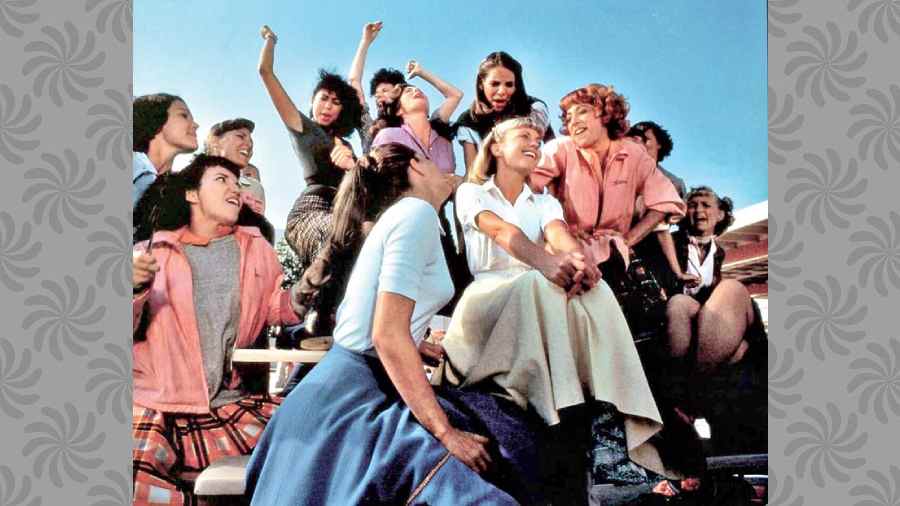The 1960s and ’70s gave birth to a global musical movement spearheaded by Australia. It’s impossible to put into words the impact The Seekers had in the 1960s with hits like I’ll Never Find Another You and Georgy Girl. Till then, there was hardly any Australian popular music on the global platform. Inspired by the group and its lead singer Judith Durham, more names followed — Diana Trask, who found encouragement in Frank Sinatra, Helen Reddy with her feminist anthem I Am Woman, and Olivia Newton-John, one of the most loved singers globally. In a matter of days, two of them have been snatched away from the world of pop — Durham passed away in Melbourne on August 5 and Newton-John breathed her last on August 8.
Newton-John made Melbourne her home at the young age of six after her father, Brin Newton-John, who worked as a college professor, immigrated from England (her mother, Irene, was the daughter of Nobel Prize-winning physicist Max Born). Her career marked a smooth change in musical style, going from folk to country to pop-rock and then disco-pop, yet she had sway over a wide range of listeners, who were fans of Loretta Lynn and Dolly Parton as much as the Bee Gees.
Her career was one of resilience — from allowing music to define her in the face of criticism from a few musicians of the era to becoming “a symbol of triumphs and hope for over 30 years sharing her journey with breast cancer”.
The early steps towards dedicating herself to music came in the form of her first group — Sol Four — at age 14 with three girls from her school. Then arrived successful solo performances on the local radio and TV shows under the name ‘Lovely Livvy’. Then a milestone — her appearance on The Go!! Show where she met singer Pat Carroll with whom she would form a duet, as well as her eventual producer, John Farrar.
Like The Seekers, who found global success after stepping off the ship in England, Newton-John too had a similar fate. The prize for winning a local TV talent contest was a trip to Britain where she recorded her first single, ’Til You Say You’ll Be Mine (Decca Records, 1966). Pat Carroll too moved to London and the two of them formed a duet — Pat and Olivia — that toured Europe but on the latter’s visa expiring, Newton-John was on her own.
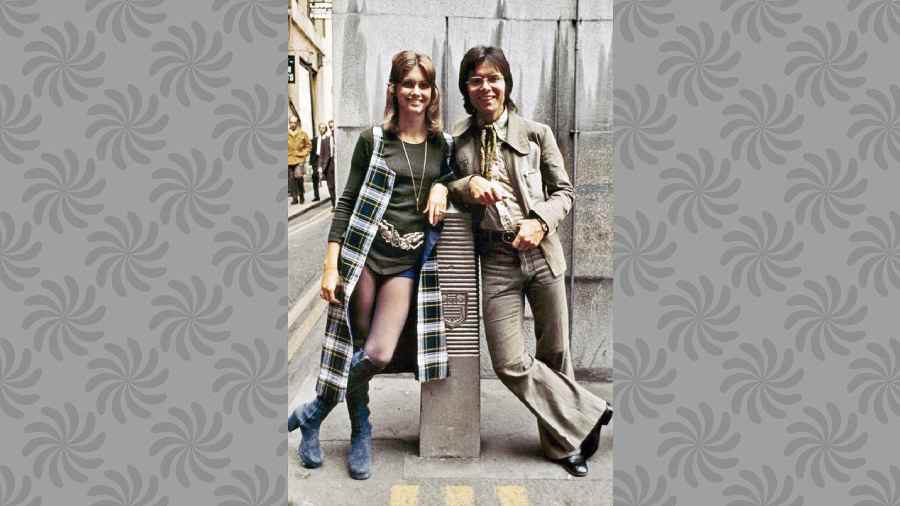
With Cliff Richard, who helped Olivia Newton-John’s career by featuring her on his variety show, It’s Cliff Richard.
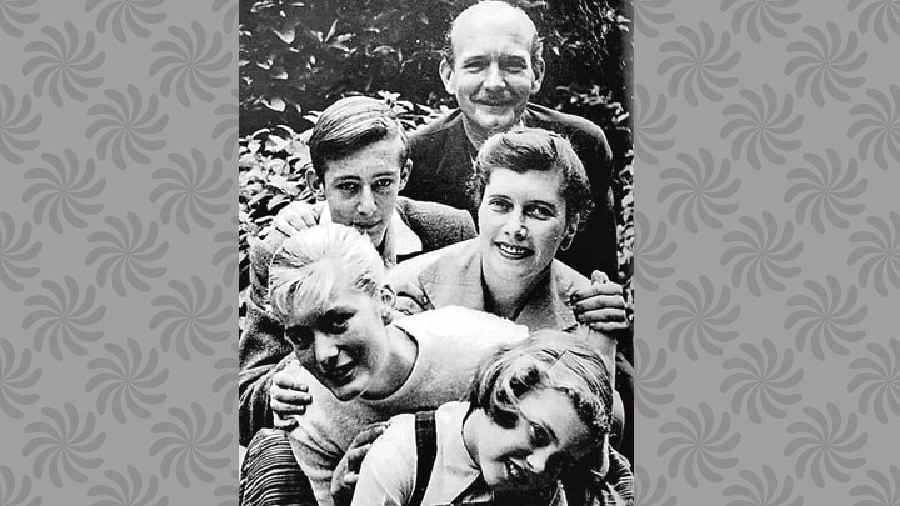
Olivia Newton-John (bottom) with her sister Rona, mother Irene, brother Hugh, and father Brin in Australia in the mid-1950s. Irene, was the daughter of Nobel Prize-winning physicist Max Born. Picture: Brin Newton-John
Career trajectory
Everything happened fast and not always to plan. In 1969-70, music publisher and talent manager Don Kirshner, who had come up with the Monkees as an American answer to the Beatles, put together a band called Toomorrow that he described as “an action-adventure group — James Bond with music” and she was among its members.
Next step was her debut solo album If Not for You, which released in 1971 with its title being a cover of a Bob Dylan song. It was a modest success. Helping her fortunes was a meeting with Lucknow-born Cliff Richard, who has spent a short period in Howrah, before moving to England in 1948. In 1971, Richard was hosting his own TV variety show (It’s Cliff Richard) and she was invited to become a regular guest singer. Bruce Welch and John Farrar, members of Richard’s band Shadows, liked her voice and they thought it was perfect for country-focused tracks.
The breakthrough moment happened around this time when her 1973 song Let Me Be There released and it got her that year’s Grammy award for best female country vocal performance. Then she represented England in the Eurovision contest in 1974 and lost to none other than Sweden’s Abba but it was a glorious moment.
It was a good time for her and she didn’t fall prey to the traps of stardom. Some fellow musicians considered her “just another pretty voice”. In a Playboy magazine interview, Randy Newman was sarcastic: “I can’t understand the vast appeal of a song like I Honestly Love You. I mean, it’s boring, even.” In a 1975 interview with The Rolling Stone, she defended commercial music: “It annoys me when people think [that] because it’s commercial, it’s bad. It’s completely opposite: if it’s commercial, people like it, and that’s what it’s all supposed to be about. I wouldn’t sing anything I hated. I have to like it, or I wouldn’t sing it.”
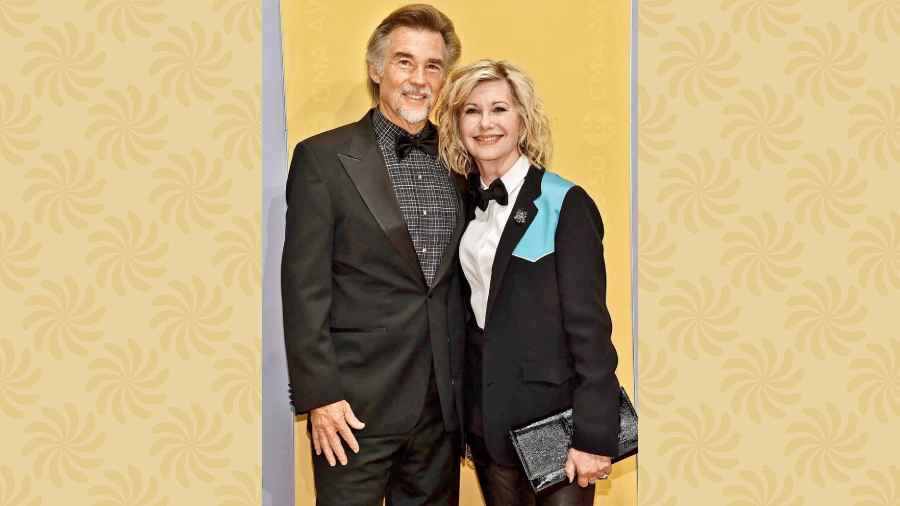
File picture of Olivia Newton-John with her husband John Easterling, who has said: “Her healing inspiration and pioneering experience with plant medicine continues with the Olivia Newton-John Foundation Fund.”
Grease: Upwards and onwards
Then arrived a new phase to her career, which began with Grease (1978), the Hollywood musical. The soundtrack became one of the best-selling albums of all time, led by Travolta and Newton-John’s smash hit, You’re the One That I Want. Cast in the role of high-school student Sandy, who first gets portrayed as a naïve girl but towards the end of the film, she changes and shows up like the “other girl”. “The film people were always treating me like Sandy…. One day — the day before we were supposed to shoot the scene that has Sandy’s change — I showed up like the ‘other’ girl and they all hit on me! I said to myself, ‘What have I been doing wrong?’ This side is much more fun than the sweet, virginal side! … [It] was an opening up for me. I felt from it that I wanted to try different things. I was open to everything new,” the singer had told The Rolling Stone. The film’s soundtrack had a number of hits for her, like Hopelessly Devoted to You and Summer Nights.
The “other girl” image defined her music in much of the 1980s. Her next film, Xanadu, didn’t match the heights of Grease but it did give her a big hit in the form of Magic. The following year, she became the image of MTV as her single Physical became the song of the year with the video (won the Grammy in 1982 for video of the year) showing the singer helping a bunch of out-of-shape men get ripped.
But the 1990s was unkind as she learned she had breast cancer in 1992. Her Olivia Newton-John Foundation Fund is dedicated to researching plant-based treatments for cancer. Putting up a brave face, she continued to release music and act in movies and on television. By the time it was May 2017, her cancer had returned and that it had metastasized to her lower back. Yet, she didn’t look back with regret. “It’s funny, but now I am known more for being a breast cancer survivor than for being a performer. It makes me proud to be someone who can inspire and help people. Maybe that was supposed to be my job all along,” she had said in an interview. For her, every day was a blessing.
Friends remember the iconic voice
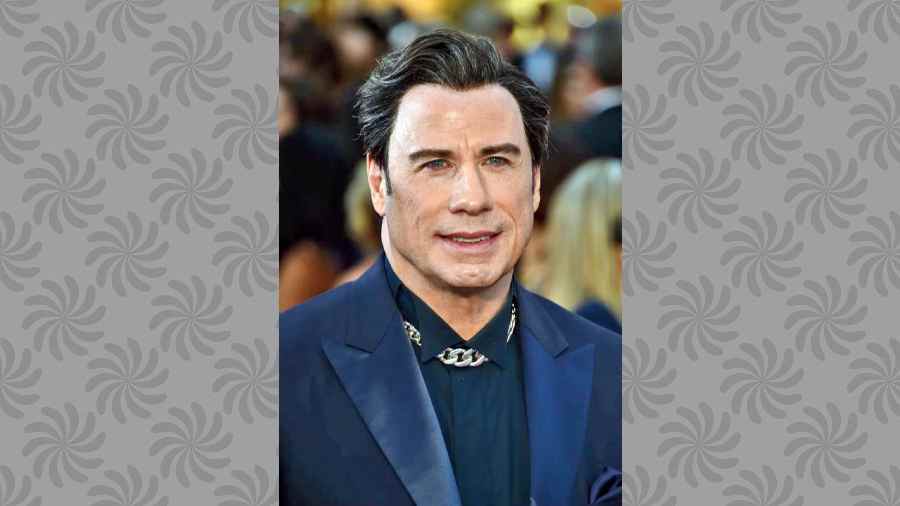
John Travolta: My dearest Olivia, you made all of our lives so much better. Your impact was incredible. I love you so much. We will see you down the road and we will all be together again. Yours from the first moment I saw you and forever!
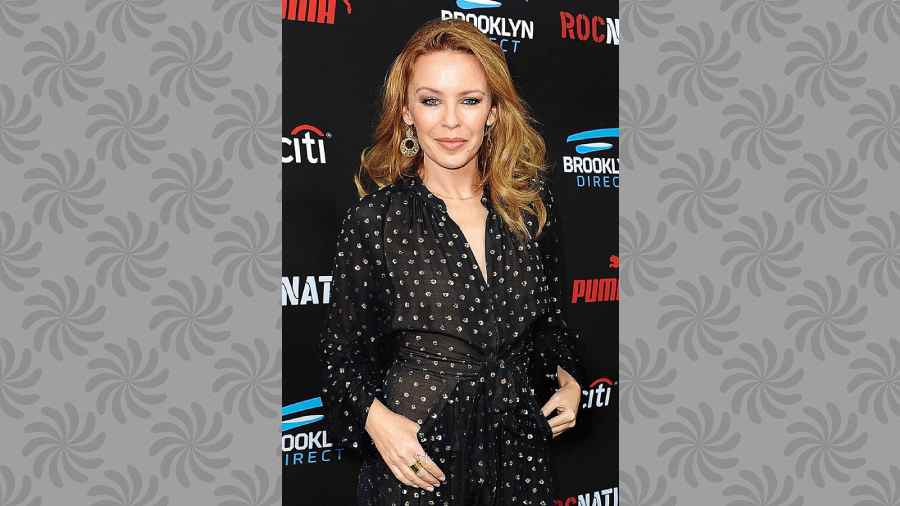
Kylie Minogue: Since I was 10 years old, I have loved and looked up to Olivia Newton-John. And, I always will. She was, and always will be, an inspiration to me in so many, many ways.
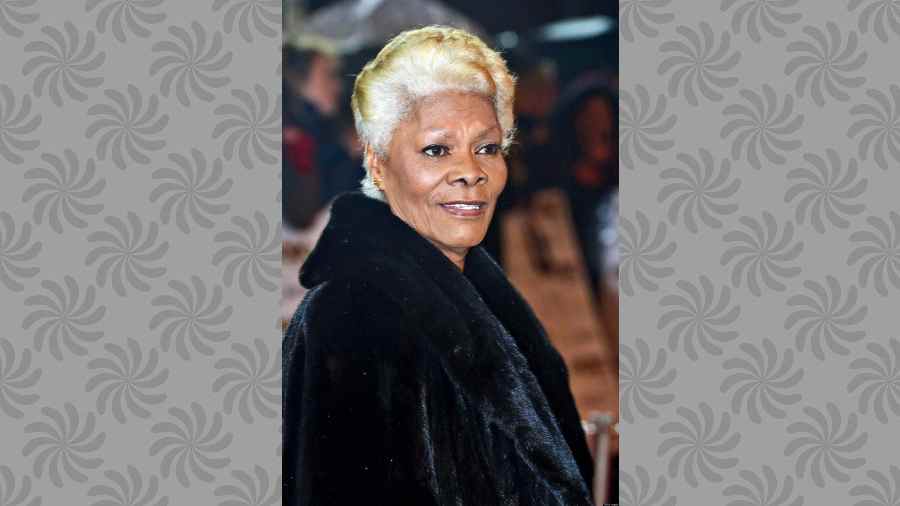
Dionne Warwick: Not only was Olivia a dear friend, but one of the nicest people I had the pleasure of recording and performing with. I will most definitely miss her.
Olivia Newton-John timeline
September 26, 1948: Born in Cambridge, England. Her family moved to Melbourne when she was six years old.
1963: She formed a group called Sol Four.
1965: She won a local talent contest that took her to Britain.
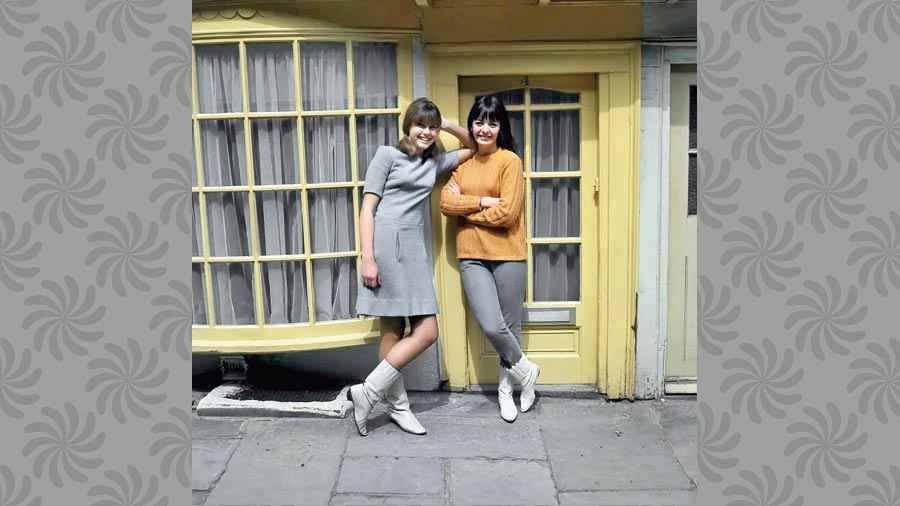
The singer had teamed up with Australian Pat Carroll to form the duo Pat and Olivia
1965-66: Pat Carroll and Olivia Newton-John formed a duet — Pat and Olivia — that toured Europe.
1966: She cut her first single for Decca Records — Till You Say You’ll Be Mine
1969-70: Olivia Newton-John was in the short-lived band Toomorrow in 1970, with fellow members Benny Thomas, Karl Chambers and Vic Cooper. The band was created by Don Kirshner.
1971: Her first album, If Not For You, is out.
1971-72: Singer Cliff Richard helped Olivia Newton-John’s career by featuring her on his variety show, It’s Cliff Richard.
1974: She was Britain’s Eurovision entry. She sang Long Live Love and came fourth in the year Abba won with Waterloo.
1978: Appeared in Grease alongside John Travolta, which catapulted her to Hollywood and global stardom.
1981: Her single Physical arrives and though it sold 10 million copies, some radio and TV stations banned it from being too sexual.

Olivia Newton-John in a still from the video for her 1981 hit Physical
1992: Diagnosed with breast cancer.
2012: She reunited with Travolta for the album This Christmas.
